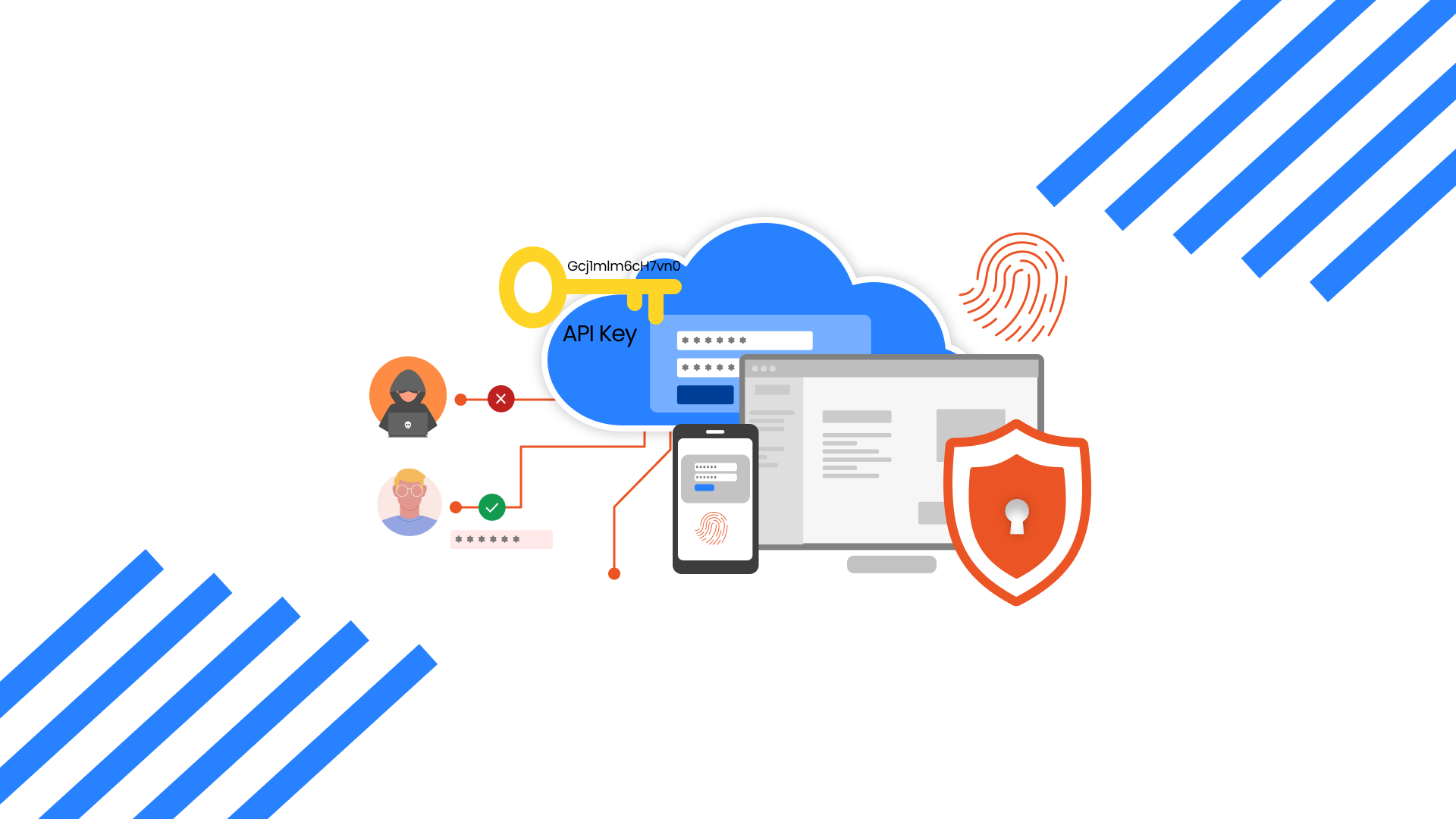What is an API Key?
 Cloud Tuned
Cloud TunedTable of contents

In today's interconnected digital landscape, APIs (Application Programming Interfaces) serve as the backbone of modern software development, enabling seamless integration and communication between different systems and services. API keys, often referred to as authentication tokens or access keys, play a fundamental role in securing and controlling access to APIs. In this article, we'll explore what API keys are, their use cases, best practices for their usage, and conclude with key takeaways.
What is an API Key?
An API key is a unique identifier or token provided by an API provider to developers or applications. It serves as a credential that authorizes access to specific APIs or resources. API keys are typically passed along with API requests as a means of authentication and authorization, allowing the API provider to verify the identity and permissions of the requester.
Types of API Keys:
API keys can vary in terms of their structure, scope, and purpose. Different types of API keys offer varying levels of access control and functionality. Here are some common types of API keys:
1. Standard API Keys:
Standard API keys are the most common type of API keys and are typically used for authentication and access control. They consist of a randomly generated string or alphanumeric code that serves as a unique identifier for a client or application. Standard API keys are used to authenticate and authorize access to APIs and resources.
2. Secret Keys:
Secret keys, also known as client secrets or client credentials, are similar to standard API keys but are typically used in conjunction with other authentication methods such as OAuth 2.0. Secret keys are shared between the client and the authorization server and are used to authenticate the client when requesting access tokens.
3. JWT (JSON Web Token):
JSON Web Tokens (JWTs) are a type of token-based authentication mechanism commonly used in modern web applications and APIs. JWTs consist of three parts: a header, a payload, and a signature. They are signed using cryptographic algorithms and can include claims or attributes about the user or client. JWTs can be used as API keys to authenticate and authorize requests.
4. API Tokens:
API tokens are similar to standard API keys but may include additional metadata or attributes such as expiration dates, scopes, or permissions. API tokens can be generated dynamically and are often associated with specific users, applications, or API operations. They provide fine-grained access control and are commonly used in OAuth 2.0 and token-based authentication schemes.
5. Bearer Tokens:
Bearer tokens are a type of access token commonly used in OAuth 2.0 and token-based authentication schemes. Bearer tokens are passed along with API requests in the HTTP Authorization header and are used to authenticate and authorize the requester. Bearer tokens do not require a specific API key format and can be implemented using various token formats such as JWTs or opaque tokens.
6. Session Tokens:
Session tokens are temporary tokens issued to authenticate and authorize a user's session. Session tokens are typically generated upon successful authentication and are used to maintain session state and identity throughout a user's interaction with an application or API. Session tokens are often short-lived and may expire after a certain period of inactivity or upon logout.
Each type of API key offers distinct features and functionality, and the choice of API key type depends on the specific requirements and use cases of the application or API. It's important to carefully consider the security implications, access control requirements, and scalability when selecting and implementing API keys in your applications.
Use Cases of API Keys:
1. Authentication:
API keys are commonly used for authenticating and verifying the identity of clients or applications accessing an API. By requiring API keys with each request, API providers can enforce access control policies and ensure that only authorized clients can access the API.
2. Rate Limiting:
API keys are often associated with rate limiting mechanisms to control the number of requests made by a client within a certain time period. By assigning quotas or rate limits to API keys, providers can prevent abuse, maintain service availability, and protect against denial-of-service (DoS) attacks.
3. Monitoring and Analytics:
API keys can be used to track and monitor API usage, performance metrics, and analytics. By associating each API request with a unique API key, providers can gather insights into usage patterns, identify trends, and optimize resource allocation.
4. Access Control:
API keys enable fine-grained access control by allowing providers to assign different permissions and privileges to different keys. This allows providers to enforce role-based access control (RBAC) and restrict access to sensitive APIs or resources based on the capabilities granted to each key.
Best Practices for Using API Keys:
Use Secure Storage: Store API keys securely and avoid hardcoding them directly into source code. Utilize environment variables, key management services, or secure configuration files to protect sensitive information.
Rotate Keys Regularly: Periodically rotate API keys to mitigate the risk of key compromise or leakage. Implement automated key rotation processes to ensure timely updates and reduce the window of vulnerability.
Limit Access: Restrict access to API keys to only those who require them. Avoid sharing keys publicly or with unauthorized users. Implement access controls and role-based access control (RBAC) to enforce the principle of least privilege.
Monitor Usage: Monitor and log API key usage to detect any unauthorized or abnormal activities. Use logging and monitoring tools to track key usage, API calls, and access patterns, and set up alerts for suspicious behavior.
Encrypt Communication: Encrypt communication between clients and servers using HTTPS to protect API keys from interception or eavesdropping. Ensure that API endpoints are secured with proper encryption protocols and certificates.
Conclusion:
API keys play a critical role in securing and controlling access to APIs, enabling developers and applications to authenticate, authorize, and interact with external services and resources. By following best practices such as secure storage, regular key rotation, access control, and monitoring usage, organizations can mitigate the risks associated with API keys and build more secure and resilient applications. It's essential to prioritize API key security and implement robust security measures to protect sensitive information, ensure data privacy, and maintain the integrity and reliability of APIs and applications.
Subscribe to my newsletter
Read articles from Cloud Tuned directly inside your inbox. Subscribe to the newsletter, and don't miss out.
Written by
